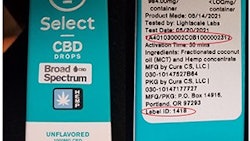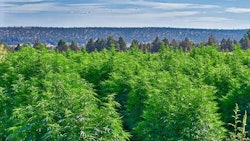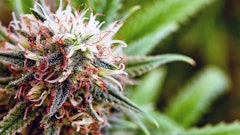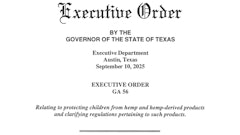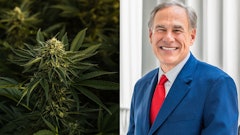
Every year from Sept. 15 to Oct. 15, Americans celebrate the cultures and achievements of Hispanic and Latino Americans during National Hispanic Heritage Month.
“We do dinner, we do lunches,” said Luis Vega, owner and CEO of Connecticut-based hemp operation ¡WEPA! Farms. “During the month, we take part in a lot of the local Latino and Hispanic heritage celebrations that go on locally.”
Vega, who is Puerto Rican and identifies as Latino, is a member of local chambers of commerce in Connecticut. He said ¡WEPA! Farms, a vertically integrated hemp business, sponsors events in both New Haven and Meriden, Conn.
“We have a local town salsa event that we participate and sponsor,” Vega said. “So, during this time, there’s a lot of festivities that go on throughout the community, and just being a good member in the community, we take part in them. And then we help support other Latino businesses in the area. So, if it's some place that makes something, we’ll usually purchase some of the items, or if it's one of the local nursing homes that has a large Latino base, we’ll send a lunch over their way or something.”
White people make up many of the cannabis and hemp industries’ ownership and leadership roles, but Vega said more Hispanics, Latinos and Latinas and other Black, Indigenous and people of color (BIPOC) are becoming owners and organizational leaders.
“We used to be mostly the employees, and in all honesty, working the fields and working the laborers,” Vega said. “Now, we’re moving more into the managerial roles at some of those places. We’re just taking on the responsibility ourselves, going out and leasing some land and starting to do some small farms. I know that in the Northeast, there has been a growth in BIPOC farmers and farmsteaders and beekeepers in our area.”
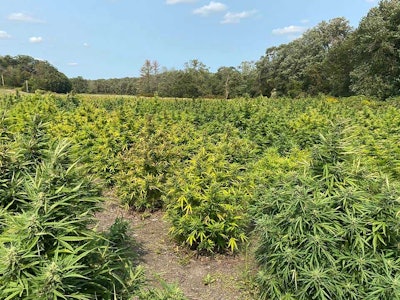
At ¡WEPA! Farms, operations are growing, facilitated by a team with unique backgrounds and experiences. The operation is up to 15 employees, five of whom are full time. “I have convicts; I have guys that spend their entire day at church,” Vega said of his employees. “I have the entire gambit of what we’ve got going on.”
In addition to growing about 270 acres of CBD and fiber hemp in Connecticut, Vega and his team added a 50,000-sq.-ft. facility for processing and final product development, and a 50,000-sq.-ft. storage space. Gummies, capsules, massage oils, pet treats and tinctures are all new product offerings from ¡WEPA! Farms since Hemp Grower featured Vega on the cover of its March issue.
RELATED: Luis Vega of ¡WEPA! Farms' Road From Cannabis Consumer to Hemp Business Owner
As they’ve expanded, Vega and his team have linked up with some women business owners in the hemp space. ¡WEPA! Farms now produces product for Her Highness, a women-owned CBD brand based in New York City.
This year, Vega said federal and state governments have stepped up to assist BIPOC farmers.
Some of that assistance comes in the form of the American Rescue Plan Act, which President Joe Biden signed into law in March. According to PBS, “A provision in the pandemic relief law directs USDA to pay off the farm loans of nearly 16,000 minority farmers and begin to address racial equity challenges.”
Additionally, groups such as the National Sustainable Agriculture Coalition and the Indigenous Food and Agriculture Initiative advocate for BIPOC farmers, said Vega, adding that he is a member of these groups.
“There's been a big focus on getting farmers that identify in the BIPOC community actual land access so that they become landowners,” Vega said. “One of the biggest problems in agriculture for a BIPOC members is having that access to land, or having that access to capital to buy land.”
More than a year and a half after it hit the U.S., the COVID pandemic continues to affect supply chains and other aspects of business, Vega said.
“We’ve just had to overcome, adapt and pivot, so, just like everybody else, fixing the problem or issue that we’re seeing and just finding an effective solution for it,” Vega said. “We just are happy, and we are still pushing forward as positively as possible, with a little help from extra CBD.”
During the pandemic, Vega said he’s seen more people farming various crops in urban areas; he likens these plots to victory gardens.
When it comes to Cannabis sativa, Vega is continuing to not only grow hemp stateside, but helping family in Puerto Rico with hemp operations. He’s also looking to add high-THC cannabis in the mainland U.S. and Puerto Rico.
Vega has a message to the industry this National Hispanic Heritage Month: “I would love for everybody to support their local farm stands, support their local BIPOC farmers, urban farm initiatives. … Any way we can create access to the urban areas goes a really, really long way in exposing our more urban-area students to agriculture."











